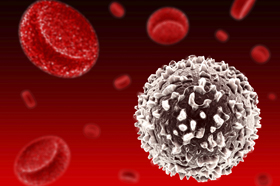Study will Examine Link Between Genes and Prostate Cancer
 Researchers from Johns Hopkins University and the University of Washington School of Medicine are collaborating on a first-of-its-kind, long-term observational study to learn how genetic differences can affect patient outcomes. Dubbed PROMISE (Prostate Cancer Registry of Outcomes and Germline Mutations for Improved Survival and Treatment Effectiveness), the research will examine how particular genetic profiles can influence the susceptibility of men to prostate cancer, impact the effectiveness of existing treatments, improve guidance for existing and new treatment options and suggest precise areas to explore for new discoveries.
Researchers from Johns Hopkins University and the University of Washington School of Medicine are collaborating on a first-of-its-kind, long-term observational study to learn how genetic differences can affect patient outcomes. Dubbed PROMISE (Prostate Cancer Registry of Outcomes and Germline Mutations for Improved Survival and Treatment Effectiveness), the research will examine how particular genetic profiles can influence the susceptibility of men to prostate cancer, impact the effectiveness of existing treatments, improve guidance for existing and new treatment options and suggest precise areas to explore for new discoveries.
PROMISE researchers are seeking prostate cancer patients nationwide, ages 18+ with specific inherited genetic factors using a saliva DNA test. PROMISE will access each patient's medical information via their physician every six months. PROMISE will also survey participating patients every six months about their treatment experience.
While genetic information has contributed to advances in treatment of diseases such as breast cancer, it has not been widely used in prostate cancer. Researchers anticipate that the PROMISE study will lead to important new discoveries, new research and new treatment therapies.
"If we want to better understand prostate cancer, we have to better understand genes," explained Dr. Heather Cheng, PhD, associate professor of medical oncology at the University of Washington School of Medicine; director of the Prostate Cancer Genetics Clinic at Seattle Cancer Care Alliance; faculty member at Fred Hutchinson Cancer Research Center; and co- lead investigator of PROMISE. "This information is the next step in our collective fight against the disease."
Dr. Cheng is working closely with Dr. Channing Paller, associate professor of oncology and urology at Johns Hopkins University, Sidney Kimmel Comprehensive Cancer Center; associate director for oncology of the Johns Hopkins Clinical Research Network; and co-lead investigator of PROMISE. They know that prostate cancer may be written in some men's genes, but so are instructions for discovering new treatments and understanding family risk. Together, Dr. Cheng and Dr. Paller will bring more genetic information to the fight against prostate cancer.
Related Articles
Citation
Study will Examine Link Between Genes and Prostate Cancer. Appl Radiol.
August 30, 2021